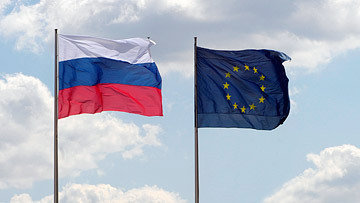MOSCOW, June 28 (RAPSI) – The European Union has prolonged sanctions, targeting specific sectors of the Russian economy, until January 31 of the next year, a press-release issued by the European Council reads on Wednesday.
This decision, according to the document, was taken after French President Macron and German Chancellor Merkel provided the European Council with new data on the implementation of the Minsk Agreements. “Since this did not happen, and given that the Minsk agreements have still not been fully implemented, the Council has extended the sanctions,” the document reads.
On Wednesday, the European Council formalized the decision through a proper procedure and unanimously supported it, the press-release states.
The economic sanctions targeting the financial, energy, and defense sectors, as well as the sector of dual-use goods, were first introduced on July 31, 2014, for a one-year period and toughened in September 2014.
Later, in March 2015, the European Council linked the end of the sanctions to the complete implementation of the Minsk agreements.
In addition to the sanctions, limiting access to EU capital markets for five major Russian majority state-owned financial institutions and three major Russian energy and three defense companies, as well as curtailing access to some sensitive technologies and services related to oil production and exploration, the European Council employed additional measures. Among them are targeted individual restrictive measures against 150 people and 37 entities, which are in place until September 15, 2017, and restrictive measures undertaken in response to the reunification of Crimea and Sevastopol with Russia deemed illegal by EU, in place until June 23, 2018.
In the spring of 2014, the EU, the United States and Canada slapped the first sanctions on Russian companies, banks and politicians, freezing their bank accounts, denying them entry and refusing to buy Russian products. The move was linked to the conflict in Ukraine. Among the companies affected by these sanctions are several of top Russian companies: Sberbank, VTB, Gazprombank and others.
In response, in August 2014, the Russian government introduced a year-long ban on agricultural imports from the EU, the US, Canada and several other countries that imposed sanctions on Russia. Blacklisted food imports included meat, fish, dairy, fruit and vegetables. In late June 2015, Russia extended the embargo until August 5, 2016. Last June, the ban was extended yet again until December 31, 2017.



